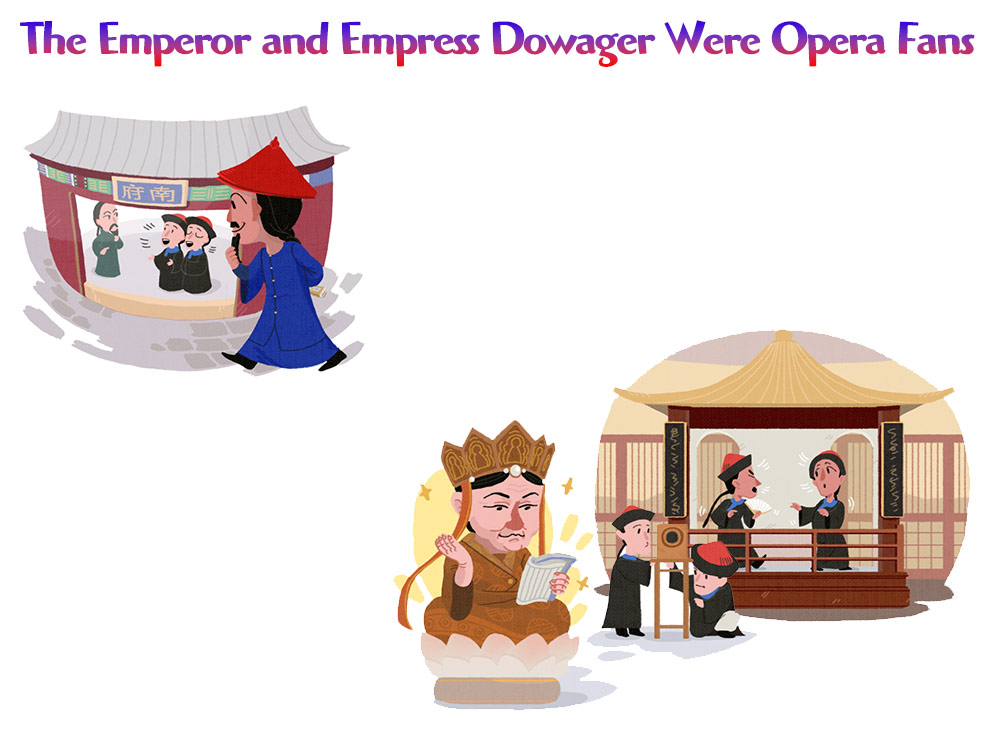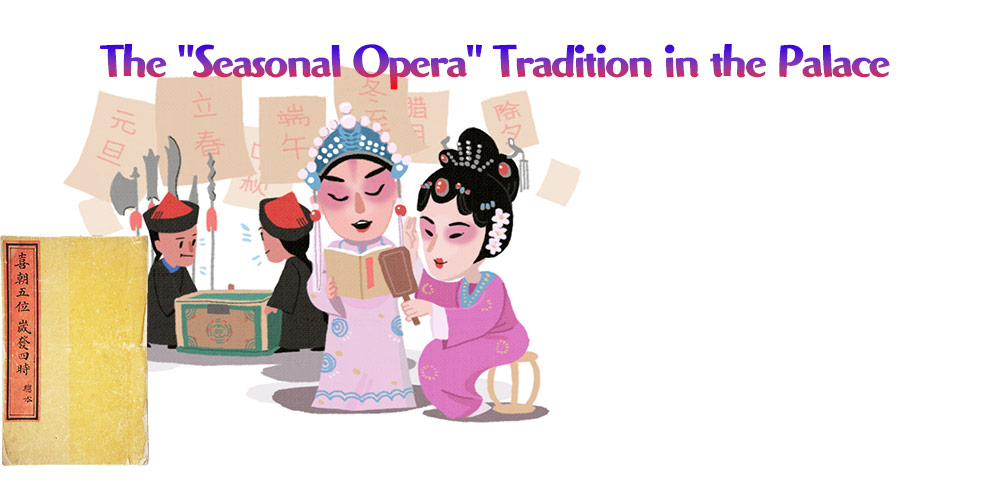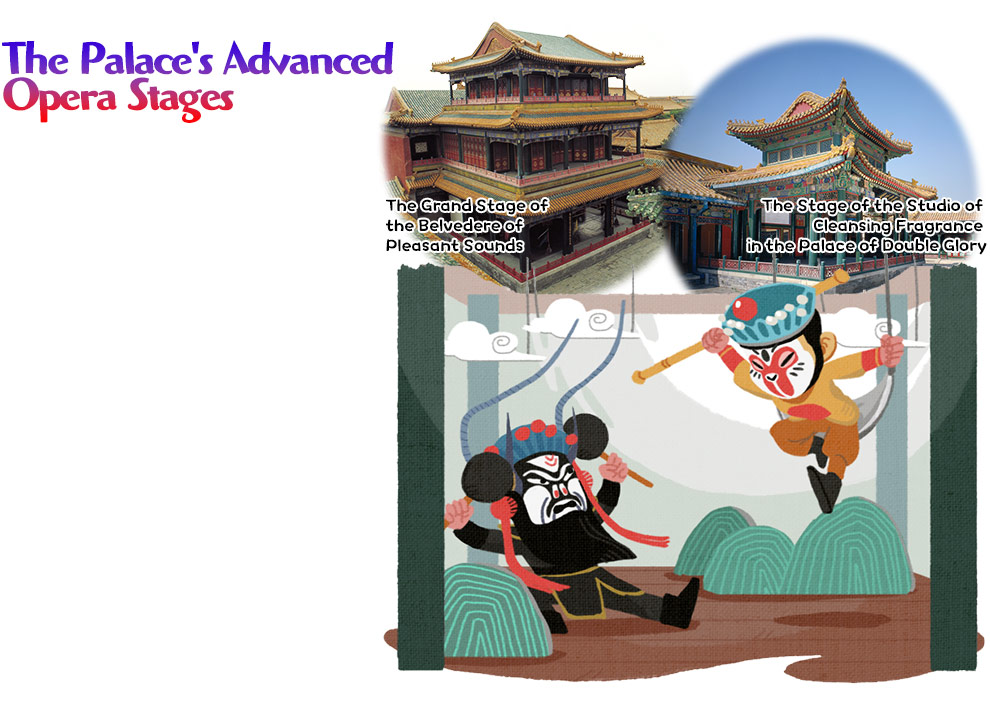Watching a lively Spring Festival Gala has become essential to celebrating Chinese New Year for families everywhere. Although there was no television in the imperial palace of the Qing dynasty (1644–1911), scenes of auspicious dramas specially prepared for festivals played out one after another, sometimes lasting days or even weeks. The opera gatherings for the emperor and empress dowager were more vibrant than today's Spring Festival Gala! Let’s take a look.
From Emperor Shunzhi (r. 1643–1661) to Emperor Qianlong (r. 1735–1796) and even the famous Empress Dowager Cixi, nearly every Qing emperor and empress dowager was an ardent fan of opera—perhaps more so than you might imagine.
For instance, Emperor Shunzhi once envisioned commissioning palace writers to edit plays according to his own “creative ideas” and even attempted to adapt the Ming dynasty (1368–1644) play The Story of the Crying Phoenix (Fengming ji).
Emperor Kangxi (r. 1661–1722), also an opera enthusiast, followed in his father’s footsteps by having the Journey to the West script and music reorganised. He even established a specialised institution, the Southern Bureau (Nan fu), where teachers trained eunuchs to sing and perform, nurturing his own “actors”.
Emperor Qianlong had an even greater passion for opera. During his 60-year reign, he issued numerous edicts promoting the development of opera. After his abdication, he had a small stage built in the Studio of Weary Diligence (Juanqi zhai) in the Palace of Tranquil Longevity (Ningshou gong), where eunuchs performed light operas, acrobatics, and conjuring tricks without the need for elaborate costumes, allowing him to indulge his love for theatre at any time.
However, the most passionate opera aficionado was Empress Dowager Cixi. Not only did she watch and listen to operas, but she also rewrote scripts, dressed in opera costumes, and even posed as Guanyin (Avalokiteśvara) in staged photos. For the palace nobility, watching opera was undoubtedly one of their favourite “cultural entertainments”.
Just as we have Spring Festival galas, Lantern Festival performances, and Mid-Autumn Festival shows today, the palace had fixed opera performances for each festival under the Seasonal Opera system. Additionally, on important occasions such as imperial weddings, the birth of a prince, birthdays of the emperor and empress, or visits by foreign envoys, the imperial troupe would stage performances of various levels and scales under the Ceremonial Opera system. Both systems were established by Emperor Qianlong.
Under the Seasonal Opera system, the opening opera for New Year’s Day was Rejoicing in the Five Directions (Xichao wuwei) and Blessings in the Four Seasons (Suifa sishi), performed precisely at 5 AM as the New Year dawned. With the beating of drums and gongs, deities from all realms would gather at the imperial capital to offer blessings of peace across the world. This was followed by a series of vibrant, auspicious Seasonal Operas that often ran for days or even weeks, creating a festive atmosphere surpassing today’s TV galas.
To accommodate these auspicious performances, numerous opera stages of various sizes were constructed throughout the Forbidden City. For instance, the Studio of Cleansing Fragrance (Shufang zhai) stage in the Palace of Double Glory (Chonghua gong) was the most frequently used for imperial family banquets on New Year’s Day. This stage was equipped with a pulley system to raise and lower props, adding a touch of grandeur.
The most elaborate operatic gatherings, however, took place at the Grand Stage of the Belvedere of Pleasant Sounds (Changyin ge) in the garden of the Palace of Tranquil Longevity. The emperor and his consorts watched from the Tower of Viewing for Truth (Yueshi lou) directly opposite, while palace maids, eunuchs, and ministers sat under the side corridors, enjoying the spectacle together.
The Grand Stage of the Belvedere of Pleasant Sounds was remarkably advanced, divided into three floors—upper, middle, and lower—allowing for performances on each. It featured a skylight, a pulley system, a trapdoor, and a real well under the floor. During performances, the well could create water-spraying effects, enhancing the acoustics with the resonation of the unique water sound.
According to the memories of old-time opera performers, during productions of mythical plays like Journey to the West or Investiture of the Gods, shredded white paper would be scattered from the skylight, creating a snowstorm effect, and a harness was used to “float” deities in mid-air. Characters and props emerged from trapdoors, seemingly conjured from nowhere. This system was remarkably similar to the stage lift used in modern performances.



